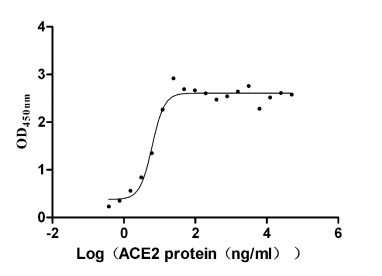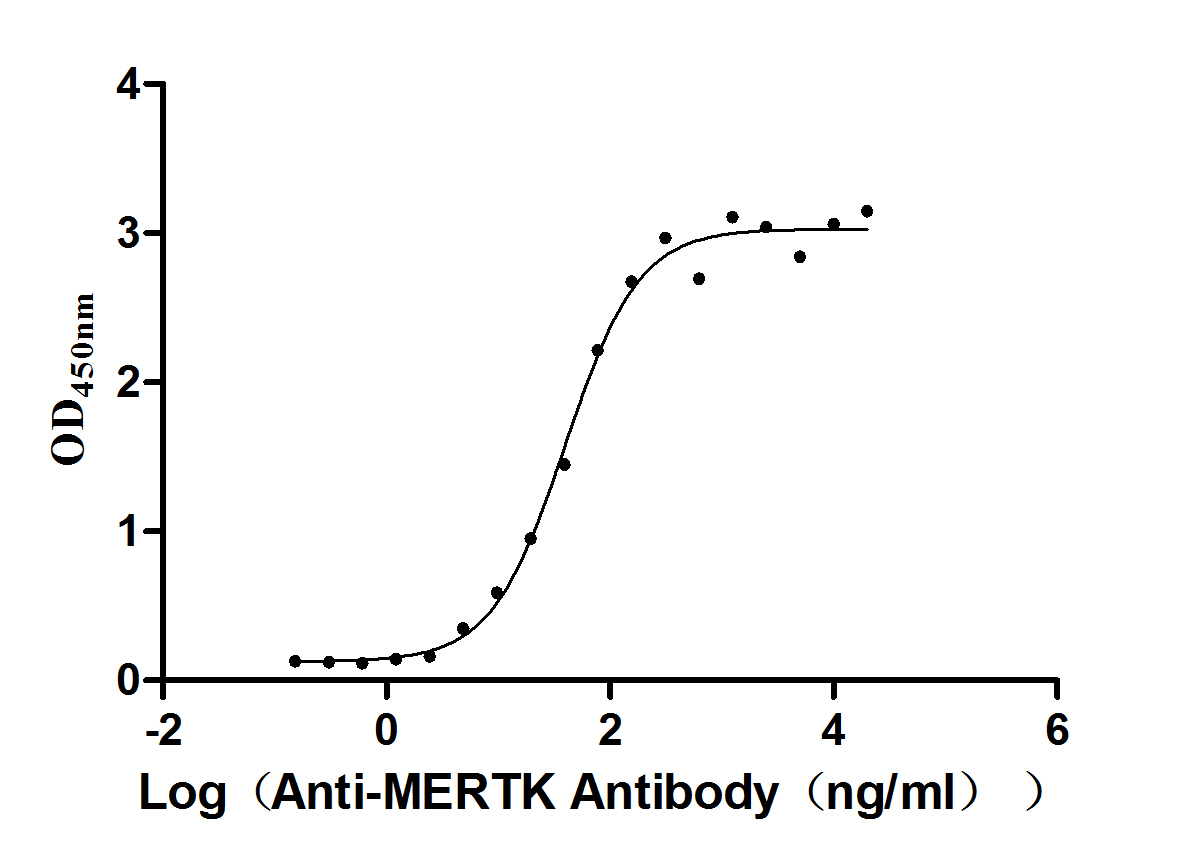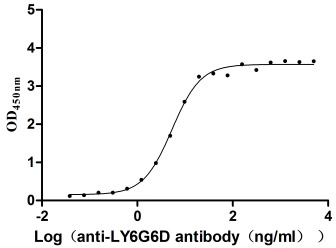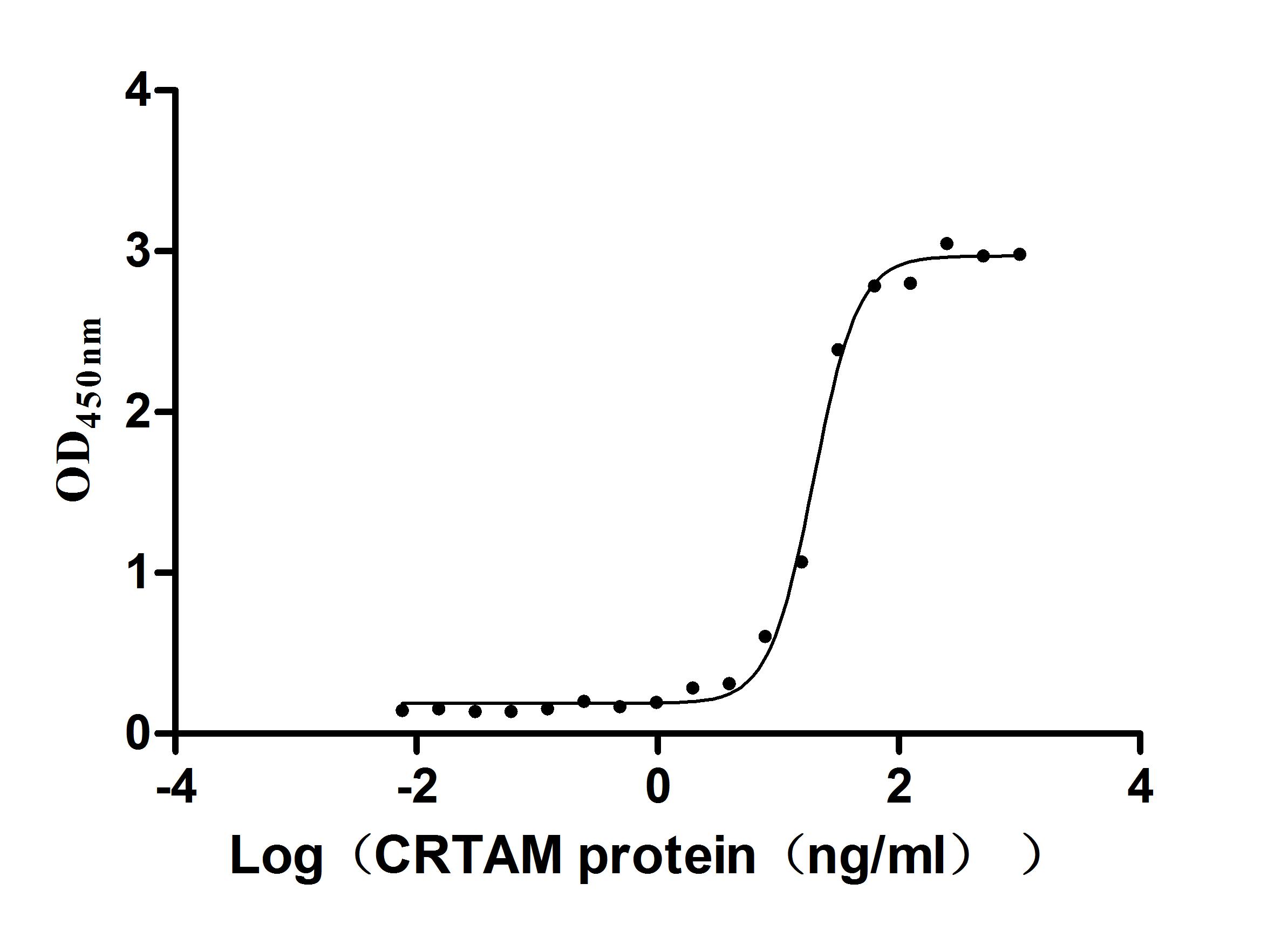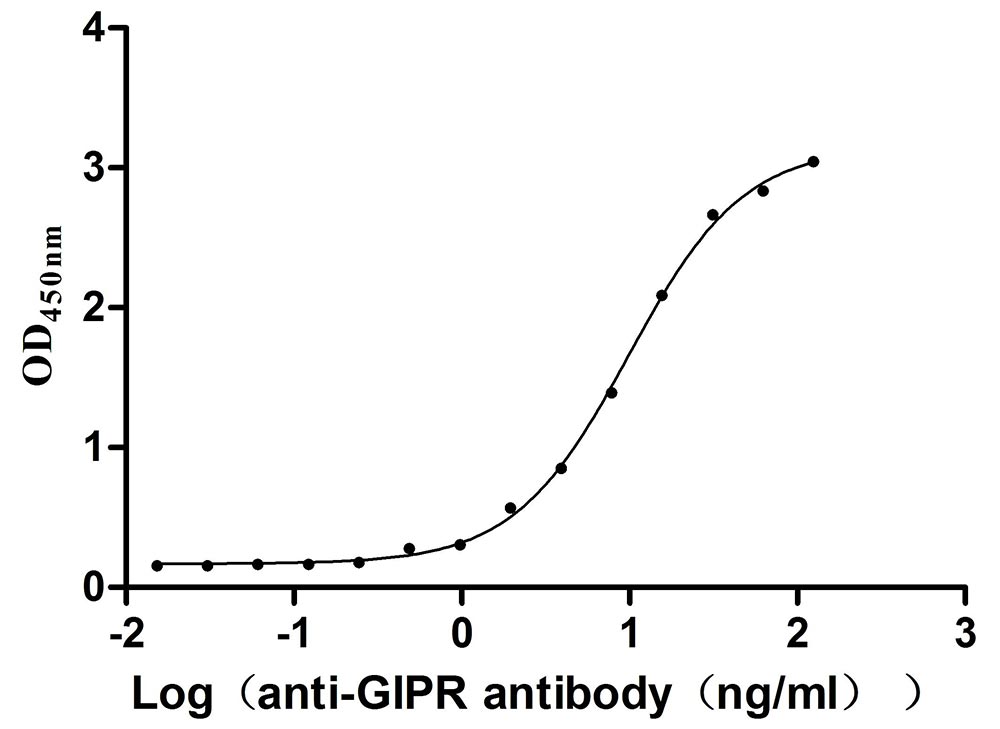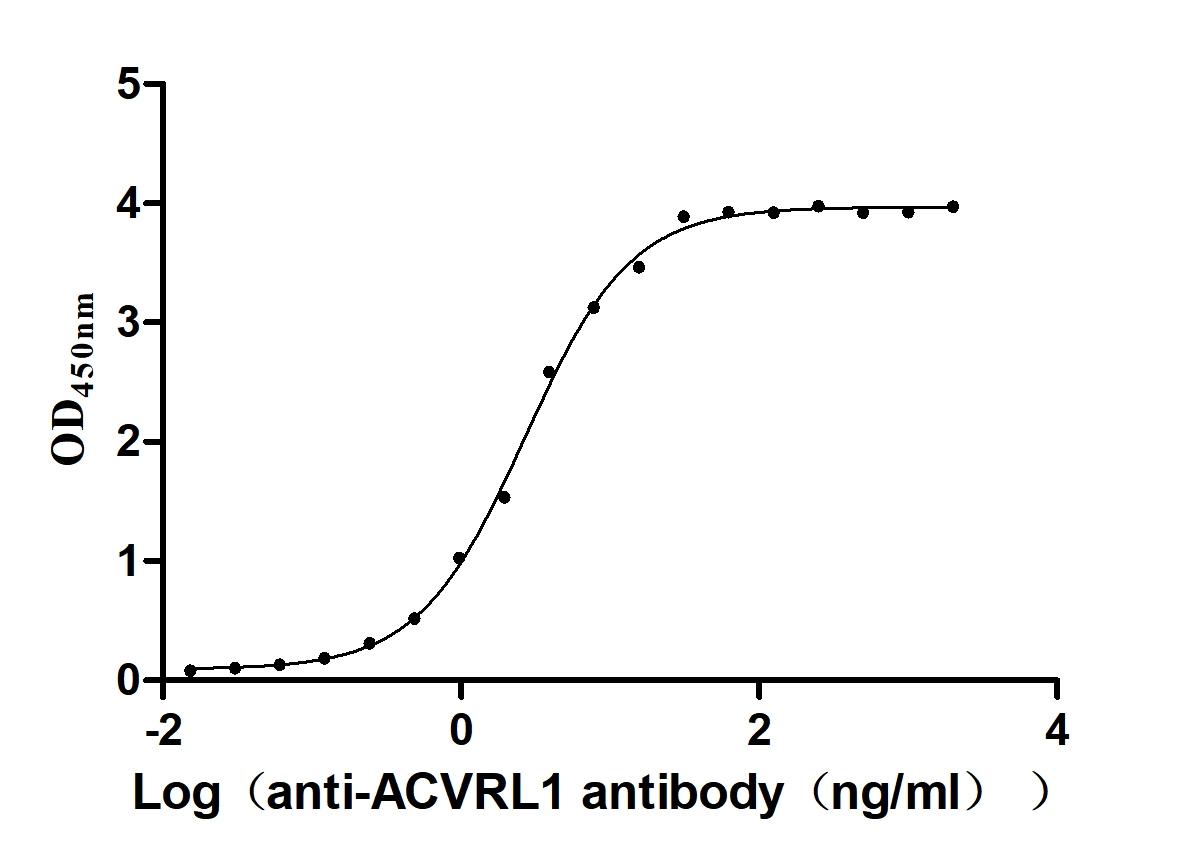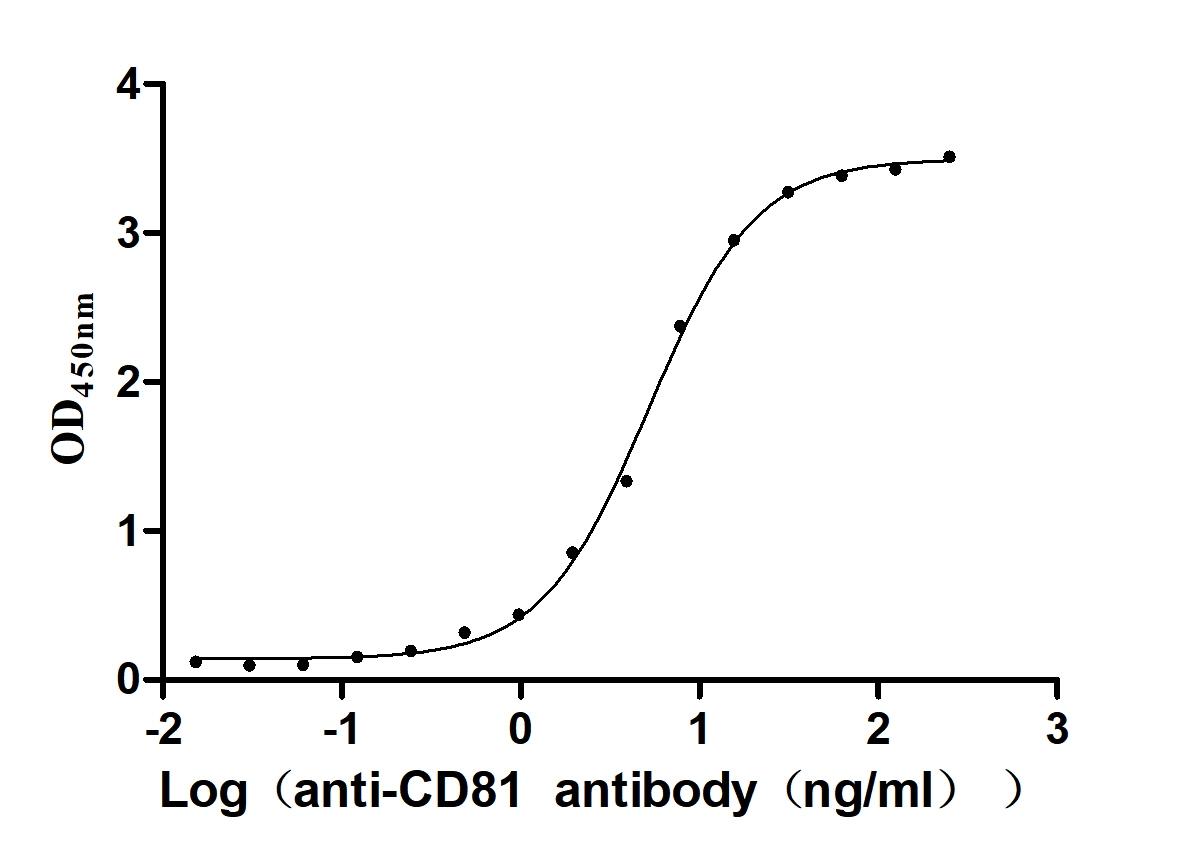Recombinant Mouse Sarcolipin (Sln), partial
-
货号:CSB-YP021780MO
-
规格:
-
来源:Yeast
-
其他:
-
货号:CSB-EP021780MO
-
规格:
-
来源:E.coli
-
其他:
-
货号:CSB-EP021780MO-B
-
规格:
-
来源:E.coli
-
共轭:Avi-tag Biotinylated
E. coli biotin ligase (BirA) is highly specific in covalently attaching biotin to the 15 amino acid AviTag peptide. This recombinant protein was biotinylated in vivo by AviTag-BirA technology, which method is BriA catalyzes amide linkage between the biotin and the specific lysine of the AviTag.
-
其他:
-
货号:CSB-BP021780MO
-
规格:
-
来源:Baculovirus
-
其他:
-
货号:CSB-MP021780MO
-
规格:
-
来源:Mammalian cell
-
其他:
产品详情
-
纯度:>85% (SDS-PAGE)
-
基因名:Sln
-
Uniprot No.:
-
别名:Sln; Sarcolipin
-
种属:Mus musculus (Mouse)
-
蛋白长度:Partial
-
蛋白标签:Tag type will be determined during the manufacturing process.
The tag type will be determined during production process. If you have specified tag type, please tell us and we will develop the specified tag preferentially. -
产品提供形式:Lyophilized powder
Note: We will preferentially ship the format that we have in stock, however, if you have any special requirement for the format, please remark your requirement when placing the order, we will prepare according to your demand. -
复溶:We recommend that this vial be briefly centrifuged prior to opening to bring the contents to the bottom. Please reconstitute protein in deionized sterile water to a concentration of 0.1-1.0 mg/mL.We recommend to add 5-50% of glycerol (final concentration) and aliquot for long-term storage at -20℃/-80℃. Our default final concentration of glycerol is 50%. Customers could use it as reference.
-
储存条件:Store at -20°C/-80°C upon receipt, aliquoting is necessary for mutiple use. Avoid repeated freeze-thaw cycles.
-
保质期:The shelf life is related to many factors, storage state, buffer ingredients, storage temperature and the stability of the protein itself.
Generally, the shelf life of liquid form is 6 months at -20°C/-80°C. The shelf life of lyophilized form is 12 months at -20°C/-80°C. -
货期:Delivery time may differ from different purchasing way or location, please kindly consult your local distributors for specific delivery time.Note: All of our proteins are default shipped with normal blue ice packs, if you request to ship with dry ice, please communicate with us in advance and extra fees will be charged.
-
注意事项:Repeated freezing and thawing is not recommended. Store working aliquots at 4°C for up to one week.
-
Datasheet :Please contact us to get it.
靶点详情
-
功能:Reversibly inhibits the activity of ATP2A1 and ATP2A2 in sarcoplasmic reticulum by decreasing the apparent affinity of the ATPase for Ca(2+). Modulates calcium re-uptake during muscle relaxation and plays an important role in calcium homeostasis in muscle. Required for muscle-based, non-shivering thermogenesis.
-
基因功能参考文献:
- SLN overexpression is associated with severe muscle atrophy and weakness. PMID: 28278204
- SLN plays an important role in adaptive muscle remodeling potentially through calcineurin stimulation, which could have important implications for other muscle diseases and conditions PMID: 28592414
- Cardiac function of Sln(Cre/+) mice was not significantly different from WT mice in all aspects that were examined. PMID: 26519028
- increased expression improves skeletal muscle performance during prolonged muscle activity by increasing store-operated calcium entry and muscle energetics PMID: 25701006
- the N termini of SLN and PLB influence their respective unique functions PMID: 25882845
- both SLN knockout (Sln(-/-)) and skeletal muscle-specific SLN overexpression (Sln(OE)) mice to explore energy metabolism by pair feeding (fixed calories) and high-fat diet feeding (ad libitum) PMID: 25713078
- overexpression of neither wild type nor FLAG-tagged variants of sarcolipin in transgenic mice had any major significant effects on body mass, energy expenditure, even when mice were fed on a high fat diet PMID: 25660043
- SLN and PLN are co-expressed in most fibers, which suggests that super-inhibition of SERCAs may be physiologically important in the regulation of intracellular Ca2+ in human skeletal muscle. PMID: 24358354
- results suggest that beta-AR signaling partially compensates for a lack of SLN to activate muscle-based DIT, but SLN is the primary and more effective mediator. PMID: 23752204
- Sarcolipin deficiency increases the transport stoichiometry of SERCA pumps and decreases the relative contribution of SERCA pumps to resting oxygen consumption. PMID: 23628781
- Data indicate that phospholamban (PLB) is not involved in heat generation and that sarcolipin (SLN) alone is responsible for muscle thermogenesis. PMID: 23341466
- During mouse muscle development SLN is highly expressed in embryonic muscle and plays role in regulation of sarcoplasmic reticulum Ca(2+) stores during muscle differentiation PMID: 22411552
- data collectively suggest that SLN is an important mediator of muscle thermogenesis and whole-body energy metabolism PMID: 22961106
- ablation of SLN results in increased SERCA activity and sarcoplasmic reticulum Ca(2+) load, which, in turn, could cause abnormal intracellular Ca(2+) handling and atrial remodeling. PMID: 22496245
- These results show that sarcolepin (SLN) regulates Ca(2+)-ATPase activity, the functional significance of SLN is graded to the SLN expression level, and SLN inhibitory effects on SERCA function are relieved in response to repeated contractions. PMID: 21697544
- Dynamic regulation of the SERCA pump by phospholamban and/or sarcolipin maintains cardiac contractility in normal conditions and during pathophysiological states. PMID: 20833651
- sarcolipin is likely to be an atrial chamber-specific regulator of Ca2+ cycling in heart PMID: 12645548
- SLN overexpression inhibits SERCA2a through stabilization of SERCA2a-phospholamban interaction in the absence of PLN. PMID: 15201433
- retention of sarcolipin in the endoplasmic reticulum is mediated through its association with other components through the C-terminal RSYQY sequence PMID: 15556994
- The expression of SLN and PLB mRNA and protein relative to SERCA1 or SERCA2 was assessed in ventricle, atrium, and skeltal msucle of mouse, rat, rabbit and pig. PMID: 15801907
- we generated left-sided pressure-overload models by transverse aortic constriction (TAC) in ddY mice. TAC significantly decreased the expression of sarcolipin, SERCA2a, and phospholamban mRNAs in the left atrium (LA) than those in the right atrium (RA). PMID: 16036219
- Sarcolipin is a novel regulator of SERCA pump activity, and its inhibitory effect can be reversed by beta-adrenergic agonists. PMID: 16365042
- Overexpression of SLN can inhibit SERCA2a in the absence of phospholamban and the inhibition of SERCA2a is correlated with impairment of contractility and calcium cycling in cardiomyocytes. PMID: 16461894
- The atrium-specific effect of thyroid hormone may occur in part through the regulation of atrial sarcolipin gene expression. PMID: 16566928
- Sarcolipin is a key regulator of SERCA2a Calcium ATPase in heart atria. PMID: 17971438
显示更多
收起更多
-
亚细胞定位:Sarcoplasmic reticulum membrane; Single-pass membrane protein. Endoplasmic reticulum membrane; Single-pass membrane protein.
-
蛋白家族:Sarcolipin family
-
组织特异性:Highly expressed in heart atrium, red gastrocnemius muscle and soleus. Detected at lower levels in the extensor digitorum longus muscle (at protein level).
-
数据库链接:
KEGG: mmu:66402
STRING: 10090.ENSMUSP00000036950
UniGene: Mm.29132
Most popular with customers
-
Recombinant Human Membrane cofactor protein (CD46), partial (Active)
Express system: Mammalian cell
Species: Homo sapiens (Human)
-
Recombinant Paguma larvata Angiotensin-converting enzyme 2 (ACE2), partial (Active)
Express system: Mammalian cell
Species: Paguma larvata (Masked palm civet)
-
Recombinant Human Tyrosine-protein kinase Mer (MERTK), partial (Active)
Express system: Mammalian cell
Species: Homo sapiens (Human)
-
Recombinant Macaca fascicularis lymphocyte antigen 6 family member G6D (LY6G6D) (Active)
Express system: Yeast
Species: Macaca fascicularis (Crab-eating macaque) (Cynomolgus monkey)
-
Recombinant Human Cell adhesion molecule 1 (CADM1), partial (Active)
Express system: Mammalian cell
Species: Homo sapiens (Human)
-
Recombinant Mouse Gastric inhibitory polypeptide receptor (Gipr), partial (Active)
Express system: Mammalian cell
Species: Mus musculus (Mouse)
-
Recombinant Human Serine/threonine-protein kinase receptor R3 (ACVRL1), partial (Active)
Express system: Baculovirus
Species: Homo sapiens (Human)
-
Recombinant Human CD81 antigen (CD81), partial (Active)
Express system: Mammalian cell
Species: Homo sapiens (Human)



